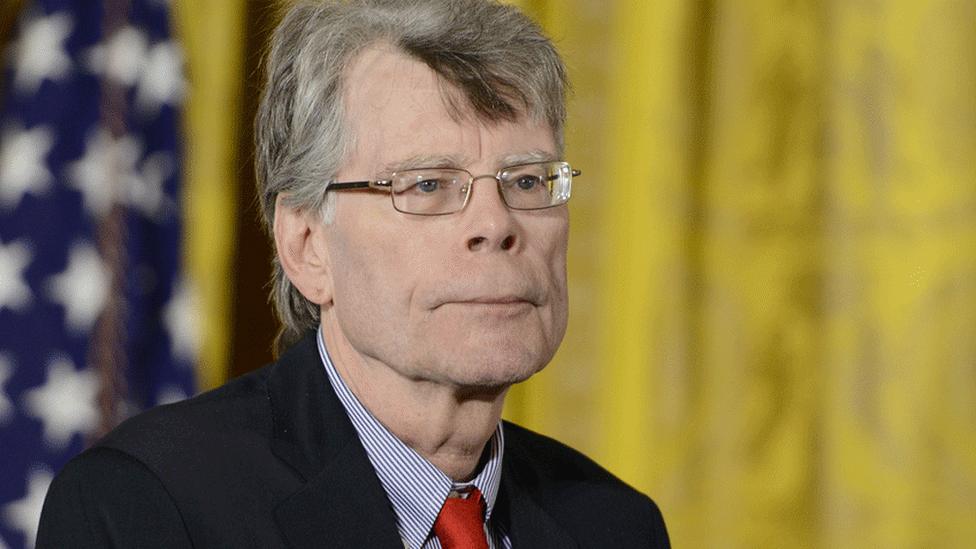Author Stephen King quits Facebook
- Published

The horror writer is a big user of social media
Novelist Stephen King has quit Facebook, saying he was uncomfortable with the "flood of false information allowed in its political advertising".
He also said he was not confident the social network was protecting "users' privacy".
, where he has 5.6 million followers.
Other high-profile users to quit include Star Wars actor Mark Hamill, comedian Will Ferrell, musician Cher and Apple co-founder Steve Wozniak
Mr King's tweet, which had been liked more than 250,000 times at the time of writing, added that users could continue to follow him and his dog Molly on Twitter.
Allow Twitter content?
This article contains content provided by Twitter. We ask for your permission before anything is loaded, as they may be using cookies and other technologies. You may want to read and before accepting. To view this content choose ÔÇÿaccept and continueÔÇÖ.
Actor Jim Carrey, who left in 2018, also sold his Facebook stock, citing the fact that the firm had profited from Russian interference in the 2016 US election.
Facebook's decision not to change the way it fact-checked political adverts has proved controversial with many.
It has argued that it is not right for private companies to censor politicians and called for government regulation to deal with the issue.
By contrast, Twitter announced in October that it would ban all political advertising, with founder Jack Dorsey saying that it was not possible to be working to stop the spread of information while at the same time allowing someone who had paid the platform to "say whatever they want".
It is estimated that US political parties will spend about $6bn (£4.6bn) on advertising in the run-up to the 2020 elections. According to research firm Kantar about 20% of this will be digital.
Facebook has said that political adverts are not a major revenue stream for it - less than 0.5% according to founder Mark Zuckerberg.
However, the firm has faced pressure to change its mind - and ask Facebook why it was not doing the same.
After the UK's recent general election, the Coalition for Reform in Political Advertising said that there had been a flood of fake news and disinformation.
This included:
a Conservative Party tweet that featured a video of Labour's Keir Starmer, in which his replies to questions about Brexit had been edited out. The Coalition said this was "misleading"
a Liberal Democrat post featuring a bar chart placing the Lib Dems in second place to the Conservatives, but with no information as to whether the underlying data came from polls or earlier election results. Without this the results were not "meaningful" said the Coalition
a Brexit Party ad that claimed five million Labour voters had voted to leave the EU. The Coalition noted that "precise figures do not exist", adding that most estimates put the number at between three and four million
a Labour Party post that said a sell-out deal with Donald Trump could mean giving £500m a week to big drugs companies. The Coalition said the sum was a "rough calculation" based on a "fairly extreme scenario"
- Published13 January 2020
- Published20 March 2018
- Published18 November 2019